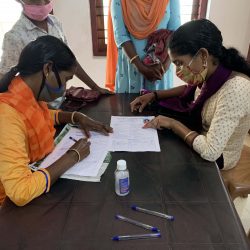Gender equality is a human rights issue with many important ramifications. Investing in women fosters greater representation in many public spheres with additional economic impacts. This empowerment is imperative to breaking down barriers to women’s success and quality of life.

Education is one prominent way to invest in women’s advancement. Of the 313 million illiterate people in India, 59 percent are women. Women’s education, especially in rural areas is an important step to eradicating poverty. Education is a link to written knowledge and skills that allow for more equitable access to resources. Overall, women’s education serves as a baseline that can propel women to new success and opportunities.
Women’s empowerment also contributes to creating equal opportunities in the workforce as well as the de-stigmatization of many issues. Because women are underrepresented in many sectors of the workforce and face a gender wage gap, programs that focus on women combat these issues. Such programs aim to see advancements in access and representation in the work force. While almost a third of women employment globally is in agriculture, they have significantly less access to or control over the land and “productive assets” compared to men (UN Women) These conditions put women in a more vulnerable work environment which hinders their ability to make a living. Working for women’s overall independence and control over their economic situations bolsters their safety and autonomy. This would also lessen the idea that women should rely on a male spouse for a livelihood, rather creating an environment that supports a more equal partnership.
As more women enter the workforce many experience the discriminatory double-day phenomenon, that increases the difficulties of entering a job market. In dual income households women are expected to maintain their jobs as well as continue all responsibilities related to the home. Not only are these women at least partial breadwinners but they are still in charge of cooking, cleaning, and child-rearing. Such notions are discriminatory and women’s empowerment through education and equitable access to resources can de-stigmatize women in public life while normalizing shared duties at home.
It is so important to support initiatives that work with and empower women. The promotion of women globally, is not just a women’s issue but a human rights cause that improves the quality of life for everyone affected. Women already contribute anywhere from 10-30 percent of a nation’s GDP through informal labor, their work in a formal sector raises these numbers even more (UN Women). Local and global movements break down barriers to women’s success which is not only a human rights success but also an overarching economic one. Through education and equitable access to resources more success is inevitable.
References:
https://www.unwomen.org/en/what-we-do/economic-empowerment/facts-and-figures

Leave a Reply
You must be logged in to post a comment.